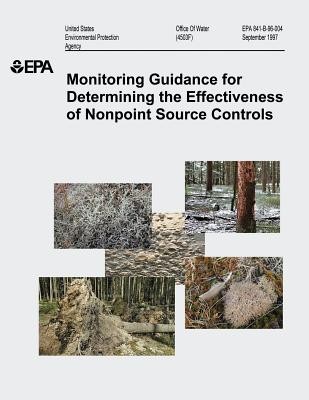
- We will send in 10–14 business days.
- Author: U S Environmental Protection Agency
- Publisher: CreateSpace Independent Publishing Platform
- Year: 2015
- Pages: 404
- ISBN-10: 151438017X
- ISBN-13: 9781514380178
- Format: 21.6 x 28 x 2.1 cm, softcover
- Language: English
- SAVE -10% with code: EXTRA
Monitoring Guidance for Determining the Effectiveness of Nonpoint Source Controls (e-book) (used book) | bookbook.eu
Reviews
Description
The diffuse nature of nonpoint sources (e. g., agriculture, forestry, urban areas) and the variety of pollutants generated by them create a challenge for their effective control. Although progress has been made in the protection and enhancement of water quality, much work is still needed to identity nonpoint source management strategies that are both effective and economically achievable under a wide range of conditions. Monitoring will play an important role in this effort. This nonpoint source monitoring and evaluation guide is written for use by both those who monitor and those who evaluate and fund monitoring proposals. This guidance addresses the design of water quality monitoring programs to assess both impacts from nonpoint source pollution and the effectiveness of control practices and management measures. There are diverse opinions regarding the most effective way to design a monitoring program. Since each situation is different and may need a unique monitoring approach, this guidance presents the theory and information needed to design monitoring programs tailored to particular situations.
EXTRA 10 % discount with code: EXTRA
The promotion ends in 16d.13:08:58
The discount code is valid when purchasing from 10 €. Discounts do not stack.
- Author: U S Environmental Protection Agency
- Publisher: CreateSpace Independent Publishing Platform
- Year: 2015
- Pages: 404
- ISBN-10: 151438017X
- ISBN-13: 9781514380178
- Format: 21.6 x 28 x 2.1 cm, softcover
- Language: English English
The diffuse nature of nonpoint sources (e. g., agriculture, forestry, urban areas) and the variety of pollutants generated by them create a challenge for their effective control. Although progress has been made in the protection and enhancement of water quality, much work is still needed to identity nonpoint source management strategies that are both effective and economically achievable under a wide range of conditions. Monitoring will play an important role in this effort. This nonpoint source monitoring and evaluation guide is written for use by both those who monitor and those who evaluate and fund monitoring proposals. This guidance addresses the design of water quality monitoring programs to assess both impacts from nonpoint source pollution and the effectiveness of control practices and management measures. There are diverse opinions regarding the most effective way to design a monitoring program. Since each situation is different and may need a unique monitoring approach, this guidance presents the theory and information needed to design monitoring programs tailored to particular situations.


Reviews